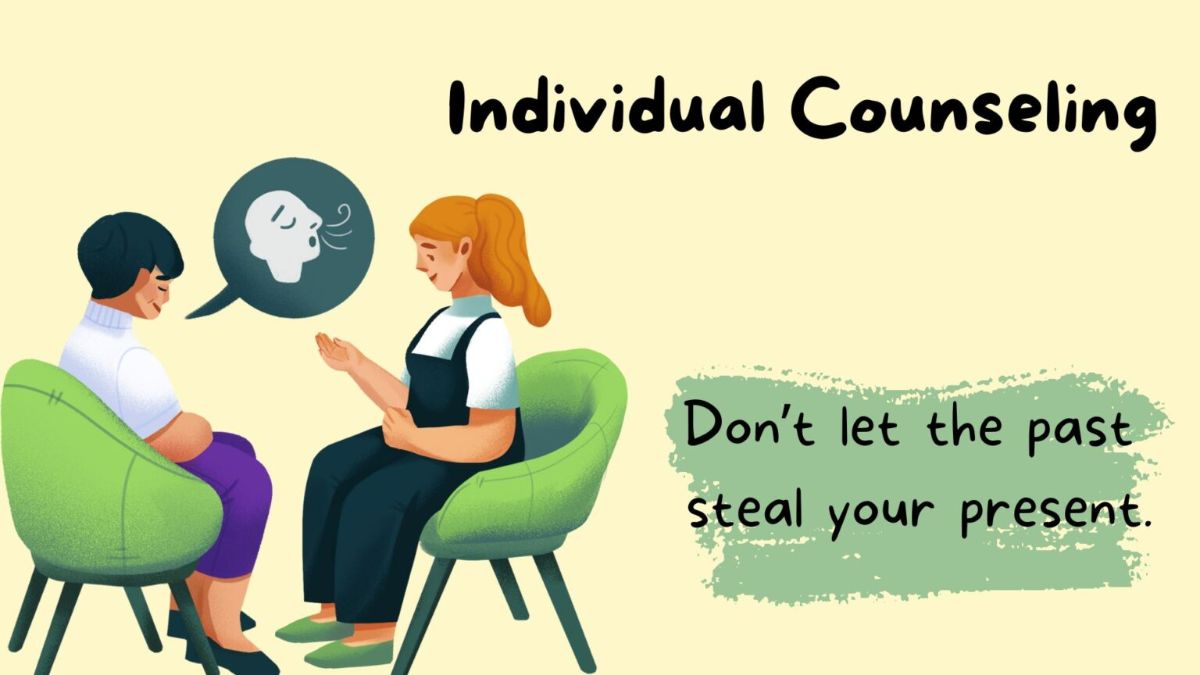Your go-to guide to Individual Counselling Services for families seeking mental health support
Discovering the Benefits of Mental Therapy for Teen Health and Development
Mental therapy plays a critical function in the health and development of young adults. Adolescence is a troubled duration marked by emotional and social obstacles. Therapy provides an organized setting for teenagers to articulate their sensations and confront their struggles. It equips them with vital tools for durability and communication. As they navigate this developmental stage, the effect of therapy can be profound. What particular benefits can emerge from such support during these formative years?

Recognizing the Teenage Mind: Pressures and challenges
As adolescents navigate the complexities of their developmental stage, they face various challenges and pressures that can significantly impact their mental health and wellness. This period is marked by considerable physical, emotional, and social modifications, which can cause feelings of confusion and uncertainty. Peer impact intensifies, often resulting in a struggle for approval and identification. Academic assumptions can produce extra tension, as the pressure to excel mounts in an increasingly affordable setting.
The development of social media introduces a new layer of intricacy, where comparisons to curated online personalities can exacerbate sensations of inadequacy and anxiety. These variables can lead to psychological distress, consisting of anxiety, clinical depression, and low self-esteem. Recognizing these difficulties is necessary for moms and dads, educators, and psychological wellness professionals, as it supplies understanding into the teen experience and highlights the need for helpful interventions to cultivate resilience and wellness throughout this essential developmental phase.
Creating a Safe Space for Expression
Producing a secure area for expression is crucial for teenagers maneuvering their troubled developing phase. In healing settings, this setting cultivates open dialogue, permitting teenagers to communicate their feelings without concern of judgment. Such rooms allow them to explore their ideas and feelings, which is crucial for understanding their identities and experiences.
When teens feel protected, they are extra likely to share their struggles, consisting of anxiousness, depression, or interpersonal disputes. This open interaction can lead to deeper insights and assist in individual development.
A risk-free area urges creative thinking and self-reflection, giving teenagers the freedom to express themselves through various outlets, such as art or writing. Establishing count on between the therapist and the adolescent is important, as it underpins the efficiency of the restorative process. Eventually, producing a risk-free space for expression serves as a foundation for emotional recovery and individual growth throughout these developmental years.
Establishing Coping Methods and Durability

Therapists often present strategies such as mindfulness, journaling, and analytical skills, making it possible for teenagers to manage their reactions better. Furthermore, by taking part in role-play situations, they practice just how to manage tight spots, enhancing their confidence. Over time, these skills foster a feeling of agency, equipping young adults with the tools to browse life's uncertainties. The growth of durability not only help in conquering prompt difficulties yet likewise prepares for much healthier emotional actions in adulthood, inevitably adding to long-lasting well-being.
Enhancing Interaction Skills
Efficient interaction skills are crucial for teens as they browse complex social landscapes. Psychological therapy plays a crucial role in improving these abilities, allowing teenagers to share their feelings and thoughts a lot more plainly. Through assisted sessions, specialists encourage teenagers to express their feelings, assisting in far better understanding in peer interactions and household characteristics.
Furthermore, treatment gives a safe area for exercising energetic listening, compassion, and assertiveness. These skills empower teens to involve in purposeful discussions, willpower conflicts, and build stronger connections. As they discover to connect properly, they additionally gain confidence in their ability to advocate for themselves and their requirements.
Furthermore, enhanced interaction abilities contribute to emotional intelligence, enabling teens to respond and acknowledge to the emotions of others. This alternative development fosters a supportive environment, inevitably advertising general wellness and social combination. With mental therapy, teenagers can grow these crucial abilities for a much healthier social experience.
Promoting Personal Growth and Self-Discovery
Fostering personal development and self-discovery in teenagers involves a multifaceted strategy that urges understanding of individuality. This process also stresses the relevance of structure resilience abilities and boosting emotional awareness. With each other, these components produce a foundation for much healthier, a lot more positive individuals as they browse their formative years.
Understanding Individuality
How do young adults navigate the complex landscape of individuality as they strive for self-discovery and development? During this developmental period, they face different influences, consisting of peers, family, and social expectations. Psychological therapy can function as a crucial tool, providing a secure space for expedition and reflection. With guided discussions, teenagers can express their thoughts and sensations, allowing them to recognize their ideas, values, and wishes. This process promotes a much deeper understanding of their one-of-a-kind identity, equipping them to make enlightened choices and establish a feeling of purpose. As they engage in self-discovery, they find out to welcome their uniqueness and browse obstacles with greater clearness, inevitably enhancing their general wellness and individual growth.
Building Durability Abilities

Enhancing Emotional Understanding
Enhancing emotional awareness is critical for teenagers navigating the complexities of teenage years, as it enables them to determine and recognize their feelings more properly. By taking part in mental treatment, teens discover to recognize their psychological feedbacks and the triggers behind them. This process fosters individual growth and self-discovery, enabling them to express their emotions and deal with try this obstacles extra adeptly. As teens create emotional awareness, they cultivate compassion, boost relationships, and boost communication abilities. Furthermore, this heightened recognition aids in decision-making, aiding them navigate social stress and establish a feeling of identity. Inevitably, promoting psychological understanding through therapy can lead to much healthier coping mechanisms and a much more well balanced emotion, basic for flourishing throughout these formative years.
Structure Healthy And Balanced Relationships and Support Equipments
While traversing the intricacies of adolescence, developing healthy and balanced relationships and assistance systems is essential for teens. These links more tips here offer psychological security and a sense of belonging, important throughout this developmental phase. Favorable relationships with peers, household, and advisors can enhance self-confidence and strength, enabling teenagers to navigate obstacles better.
Psychological treatment plays a pivotal role in promoting these partnerships by outfitting adolescents with communication and conflict-resolution skills. With treatment, they find out to express their feelings, understand different point of views, and develop borders, which are basic for keeping healthy and balanced interactions.
Helpful networks motivate teens to look for assistance when needed, decreasing isolation and promoting mental wellness. When adolescents feel connected to their support systems, they are more probable to involve in positive actions and make educated choices. On the whole, the farming of healthy and balanced connections and support group contributes in advertising adolescent wellness and personal development
Regularly Asked Concerns
How Do I Locate a Competent Specialist for My Teen?
To find a certified therapist for a young adult, one ought to look for recommendations from medical care suppliers, research qualifications online, inspect reviews, and determine the specialist focuses on teen problems, promoting a supportive atmosphere for growth.
What Are the Prices Related To Mental Treatment for Teenagers?
The costs linked with mental therapy for teenagers vary commonly, generally ranging from $50 to $250 per session. Insurance protection, sliding scale fees, and neighborhood resources can affect price and availability for family members seeking support.
Exactly How Usually Should Teenagers Participate In Therapy Procedure?
Young adults should ideally go to therapy sessions regular or biweekly, relying on specific needs. Consistent sessions can promote a risk-free area for expression, while permitting specialists to monitor progress and adjust techniques successfully gradually.
Can Treatment Work for All Teenagers?
Treatment can be reliable for several teenagers, yet specific outcomes differ. Variables such as individual conditions, openness to the process, and the therapeutic see this website approach employed all influence its effectiveness for each and every teenage.
What Should Moms and dads Do Throughout Their Young adult's Treatment Process?
Parents ought to actively sustain their young adult's treatment procedure by preserving open communication, respecting discretion, participating in sessions if welcomed, and motivating their child's efforts (Individual Therapy For Teens). Comprehending and persistence are important as teenagers browse their personal growth trip
Mental therapy plays a crucial function in the wellness and growth of young adults. By engaging in mental treatment, teenagers learn to identify their psychological responses and the triggers behind them. Psychological therapy plays a pivotal duty in promoting these relationships by outfitting teenagers with communication and conflict-resolution abilities. Teenagers need to ideally attend treatment sessions weekly or biweekly, depending on specific requirements. Moms and dads ought to proactively support their young adult's therapy procedure by preserving open interaction, appreciating confidentiality, going to sessions if welcomed, and motivating their youngster's efforts.